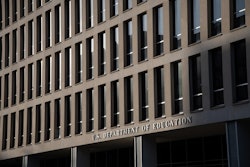 Lodriguez Murray, senior vice president of public policy and government affairs at the United Negro College Fund
Lodriguez Murray, senior vice president of public policy and government affairs at the United Negro College Fund
Months later, Congress this week, has been debating a $3.5 trillion reconciliation bill with key higher education provisions, such as plans for two years of tuition-free community college. But many experts say that these policies have not yet gone far enough in realizing some of the Biden administration’s most ambitious reforms.
“Democrats have a very slim majority in Congress, and they cannot agree on what they want,” said Dr. Robert Kelchen, professor of higher education at the University of Tennessee, on the free community college proposal. “I think every day that the discussions drag on, then the likelihood of passage goes down. Every day makes it harder.”
Another item in the debated reconciliation bill is increasing the Pell Grant for low-income students. With the midterm election next year, Kelchen added that this is a pivotal time for Democrats to get such higher education reforms through.
“This is their best year together,” he said. “If this package doesn’t end up through, there will be even more pressure next year to take action on things like student loans. This is the clearest window for free community college. It could still make its way into the budget next year, but increasing the Pell Grant is politically easier to do.”
Dr. Stella Flores, associate professor of higher education and public policy at the University of Texas at Austin, similarly argued that this is the ideal moment to reinvest in colleges and universities.
“There’s a lot of discussion on if the budget is too high, but what we’re not discussing is the counter to that,” said Flores. “What happens if we don’t invest? We already know institutions are depleted, especially those that serve low-income and minority students. And if we don’t invest in rebuilding, the loss will be far worse for the nation.”















